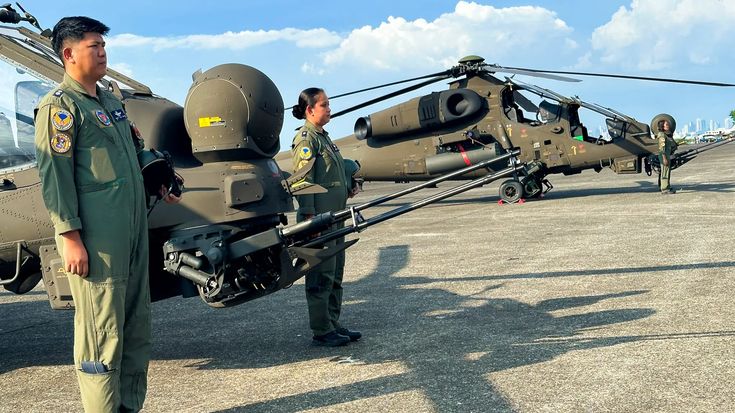Ronald Goseco l June 7, 2024 l The Manila Times

THE Philippine Air Force (PAF) held its second Multi-Sector Advisory Board (MSAB) forum last May. The forum gathered together the various MSAB units across the country in a hybrid session to promote an exchange of knowledge and best practices to create a deeper understanding of both the challenges and opportunities within the PAF.
A primary goal of the MSAB is to nurture a collaborative ecosystem where the PAF and civilian volunteers can establish partnerships through joint initiatives to amplify the PAF’s commitment to national security and development. This forum hoped to intensify the engagement of the various MSAB units in the implementation of possible solutions and improvements in the processes within the PAF.
Two specific topics were discussed during this forum. The first was Nurturing Creativity and innovation, which was presented by a leading human resource management consultant, Eric de Dios. The second topic was Developing a Safety Culture, which was presented by the safety officer of Lufthansa Technik Philippines, Sandino Cuasay.
The first session reinforced the concept that creativity and innovation are essential drivers of progress. Nurturing creativity is crucial to adapt to change, solve complex problems and thrive in a rapidly evolving world. This was also emphasized by Nieves Confessor, who talked about the concept of VUCA (volatility, uncertainty, complexity and ambiguity) in the succeeding discussions. This session highlighted the importance of creativity and presented strategies for fostering them.
Creativity was defined as the ability to generate new ideas, concepts and solutions, while innovation involved applying these new ideas to create value for the organization. Together, these would fuel progress by challenging the status quo, pushing boundaries and inspiring change. This would enable the organization to adapt to the changes in the environment and seize opportunities.
To create a culture of innovation, we need to encourage open communication where everyone should be comfortable sharing new ideas. We need to support risk taking and accept failures as learning opportunities. We need to build diverse and inclusive teams with different perspectives to enhance creativity. We need to implement effective processes and tools by structuring innovation processes using methodologies like Design Thinking, Agile and Lean to systematically approach problem-solving. We need to invest in technology and resources to provide access to tools that can aid in creative thinking. We also need to commit time and budgets for research and development.
Continuous training and development are also necessary to keep the organization updated on new developments. De Dios also encouraged the organization to continue pursuing learning opportunities with civilian stakeholders. The session reiterated the importance of leadership and management practices.
Visionary leadership is vital. Leaders should communicate a clear and compelling vision that inspires and motivates. They should act as role models by demonstrating innovative thinking and a willingness to embrace new ideas. They should provide teams the autonomy to explore and implement new ideas despite a strict and hierarchical organization. Leaders should encourage ownership and accountability in the innovation process.
De Dios also commended the PAF on its existing programs rewarding innovative contributions and creative solutions. He emphasized the value of these awards. This session concluded that the PAF needs to develop a culture of curiosity, experimentation and collaboration to unlock its full potential to drive progress, growth and the fulfillment of its mission.
The second session on Developing a Safety Culture once again highlighted the importance of leadership commitment to developing a safety first mindset. Leaders should visibly prioritize safety through their actions. They should set clear safety goals and policies. The organization should engage everyone at all levels to own the safety initiatives and decision-making processes.
Similar to the first session, safety committees should also be created with diverse representation. Paramount to developing a safety culture are open lines of communication regarding safety issues, concerns and suggestions. Cuasay emphasized that these two factors — leadership commitment and open lines of communication — are basic requirements that would determine the success of a safety program.
Just as important are safety training programs and clear guidelines that are continually assessed and updated to ensure their effectiveness. We also need to gather feedback from everyone to address evolving risks and hazards that may have been missed in previous assessments.
The MSAB forum was themed “Accelerating Beyond Boundaries: Pursuing Organizational Excellence with PAF Stakeholders.” It succeeded in engaging the MSAB participants to recommit to our national objectives of peace, security and development. Clearly, we need to expand this initiative and this commitment to the rest of the nation.
Ronald Goseco is currently a Finex Foundation trustee and chairman of the PAF Multi-Sector Governance Council. The views and opinions expressed above are those of the author and do not necessarily represent the views of Finex. Photo from Pinterest.

